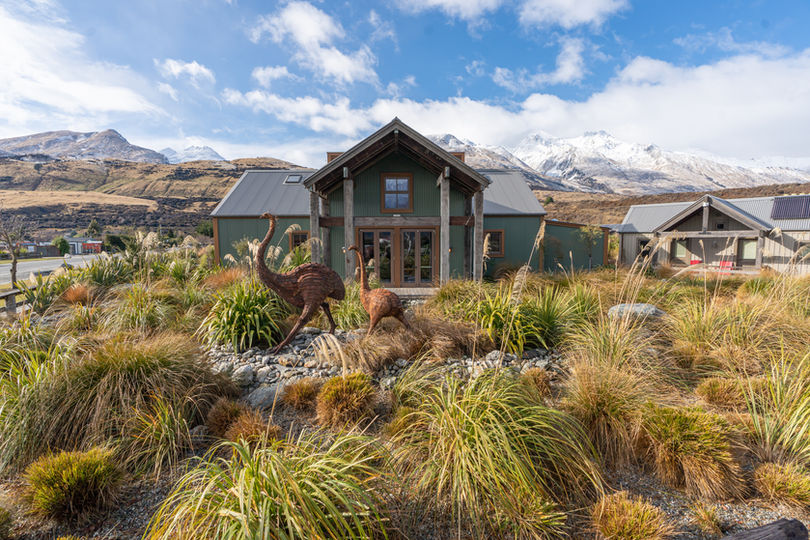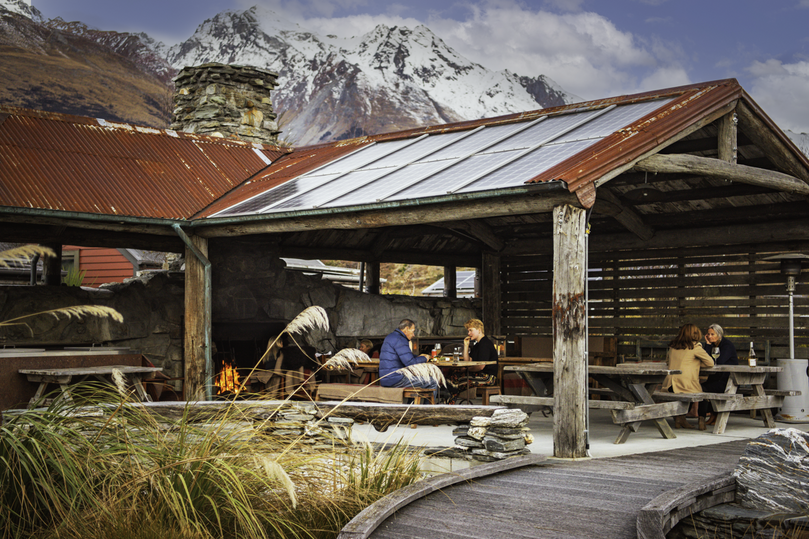
THE HEADWATERS (CAMP GLENORCHY) ECO RETREAT
Building Certification:
Living Building Challenge Petal Certification
2014 - 2018
Camp Glenorchy, now known as The Headwaters was designed and built through a shared vision of celebrating and enhancing the beautiful Southern Lakes region in which it lives.
This project was the first in New Zealand to achieve formal Petal Certification under the Living Building Challenge (LBC) v3.1 for Place, Energy, Water and Beauty petals and has also endeavoured to achieve the best possible outcome for all other aspects of LBC.
Stage 1 of this Headwaters development, Camp Glenorchy recently opened to the public in March 2018 and is comprised of a series of cabin and bunkhouse accommodation, communal kitchen/dining facilities, ablution block, maintenance building and camp fire shelter which can accommodate up to 140 visitors in a range of accommodation types.
TLC continues to advise to the operational team on meeting operational targets and performance requirements of LBC.
Camp Glenorchy offers free daily sustainability tours and has publicly posted a list of the non-toxic materials used, in the hopes of inspiring visitors and affecting change.
Place: Existing site was improved and replanted with native trees and plants to restore the natural ecosystem and support local wildlife.
Energy: Designed to achieve Net Positive Energy Certification, the camp generates much more energy, through renewable resources, then it uses and exports excess within a micro grid to an adjacent part of the business. This was achieved through passive design, a solar garden, and smart lighting. Energy generation is optimised for use on site via battery storage and load shifting. Electric car charging stations are available to visitors and powered through the camp's solar garden.
Materials/Beauty: Toxic substances and materials were avoided and natural, salvaged, and recycled materials were used wherever possible. Local artists and craftspeople helped in the design to communicate and celebrate the story of the surrounding area. In addition, a Materials Conservation Management Plan was developed to minimise waste over the life of the building.
Water: With the goal of using 50% less water than similar facilities and reducing wastewater levels, the camp implemented a number of water saving and management strategies. These included rainwater storage, water efficiency, composting toilets, blackwater aeration treatment, and greywater wetlands treatment.
2019 TIA Sustainability Innovation Award
2019 Qualmark 100% Pure NZ Experience Award
2019 Time Magazine - World’s Greatest Places
Contact
We would love to hear your vision for your organisation or project. If you’re unsure which direction to go or your Company is looking to up-skill, we can also offer custom designed Sustainability Training and Development Presentations on the following :
-
Living Building Challenge
-
Green Star
-
Low Carbon Design
-
Core Green Building Certification
-
Biophilic Design
-
Zero Energy / Zero Carbon
Feel free to get in touch for more information - use the enquiry form or call us at +64 21 584 076















